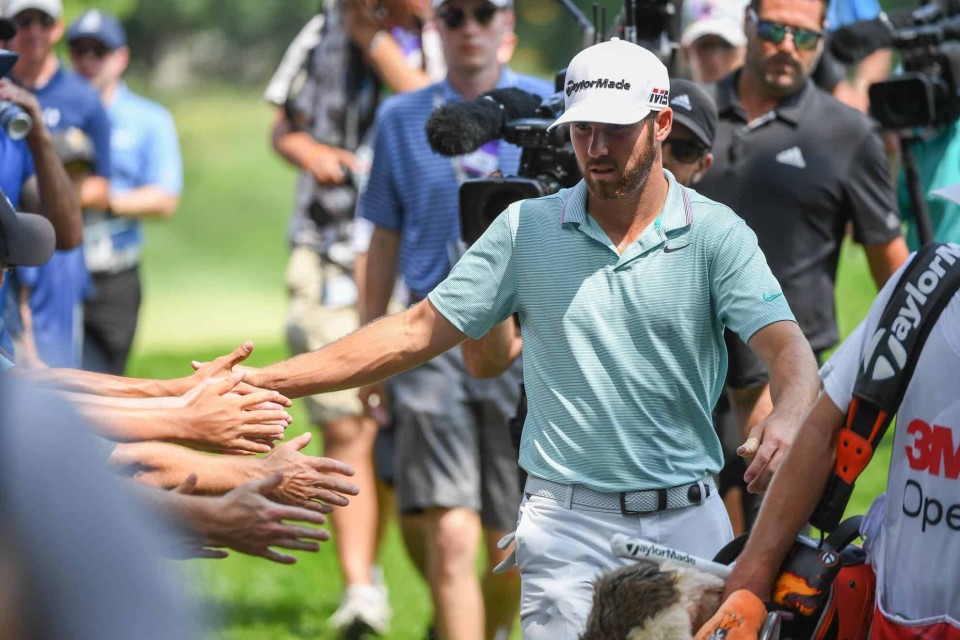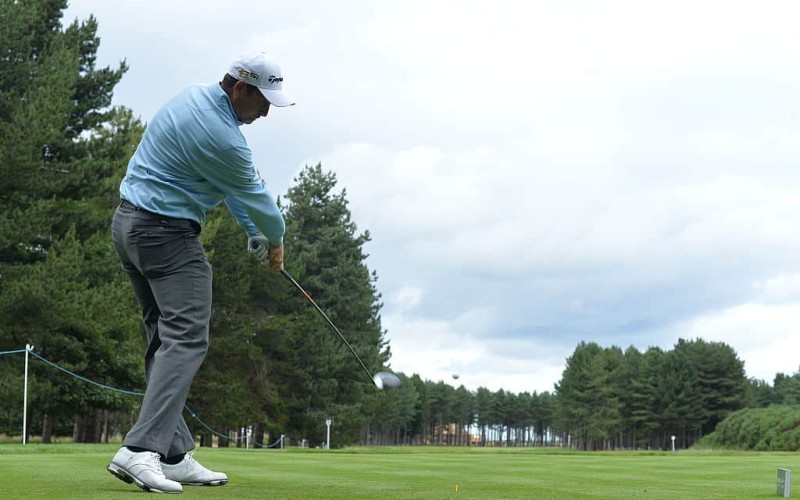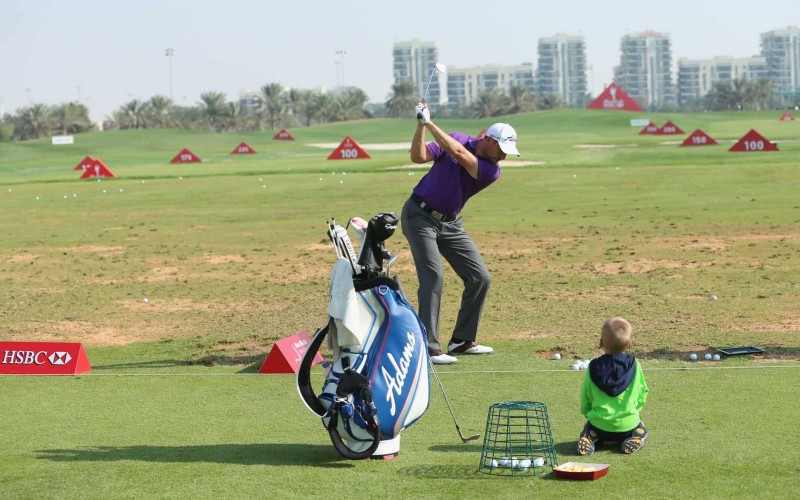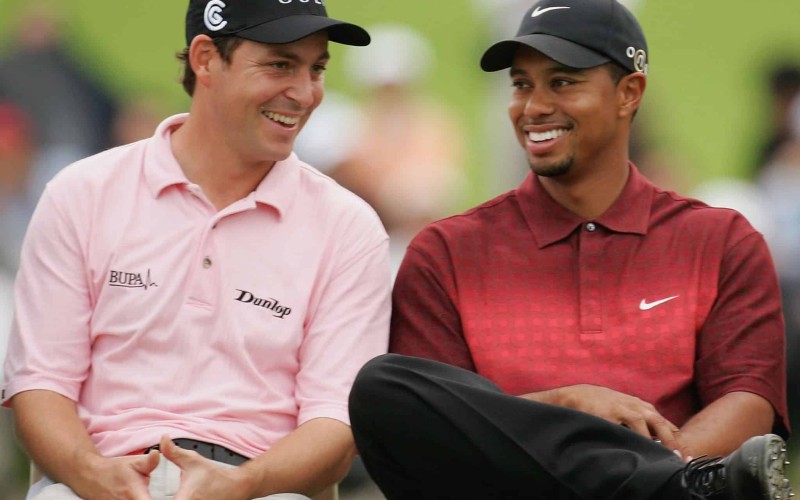The United States college golf system is producing young, PGA Tour-ready golfers, as proved by recent winners Matthew Wolff and Collin Morikawa and Norwegian star Victor Hovland.
What a shame that during a month in which the world of golf has seen the arrival of three of the brightest stars from college golf take the US PGA Tour by storm we have ended with the age-old discussion about slow play once again, with a social media-led storm over the antics of another incredibly talented former collegiate star. I will take my time coming to this subject, but I’ll start on a positive note.
Over the years, there has always been standout youngsters who looked destined to do great things in the professional game – Sergio, Tiger, Rory, Phil – all players who are so good that their first names are enough for them to be immediately recognisable. They entered the pro ranks with huge reputations and went on to reach great heights.
Others have won tournaments as Amateurs. For instance, Scott Verplank forged an excellent career without hitting the Major scene. Shane Lowry won as an amateur at the Irish Open, and a strong ten years has followed, achieving a world championship and a Claret Jug to prove that all that promise would come to fruition.
So, it will be interesting to follow the progress of the new triumvirate of Matt Wolff, Collin Morikawa and Victor Hovland. Winning within the first two months out on the PGA Tour, as Wolff and Moriwaka have done, when you know that your chances are limited to only six events or so, is a remarkable achievement. To seal such success with an eagle on the last hole to win by one, as Wolff did, is almost unthinkable.
Three starts for Wolff, who wins his first professional event with an eagle on 18. Six for Morikawa, who wins his with birdies at the final three holes. Clearly an outstanding class but it’ll happen again and again. Best college players are already good enough when they graduate.
— Ben Coley (@BenColeyGolf) July 29, 2019
For many years, golf has marvelled at technically supreme golf swings but the modern way of deducing what that actually means is changing fast. Repeatable Dynamic Movement is the current flavour, rather than grace and positions, and the trailblaser in this new world view could well be Matt Wolff. I found myself wanting to watch him play over most of the other players when I covered PGA Tour golf for Sky Sports recently, conventional all of a sudden, seemed a little…dare I say it, boring.
Hovland, on the other hand, peppered the flagstick time and time again in his quest to finish second at the Wyndham Championship and guarantee his Tour status for next season, eventually finishing a mere two shots shy. He plays with a smile on his face and he’s heading for a big future, but before that, he will go through the three-week Korn Ferry Finals shootout to join his compatriots with a full card next season and I have no doubts that he will progress. That his two college compatriots have already won will only strengthen his belief that he has all the tools that he needs.
Slow Play
THE SLOW PLAY saga rumbles along and it’s gathering pace now that uninterrupted live streaming is able to broadcast players’ entire pre-shot routines. Previously, networks tended to abstain from showing the pre-shot routine of any notoriously slow player – but not anymore! Nowadays, extended feature group footage is shown and when you add into the mix the increasing amount of social media and 24-hour sports news, it seems to be forever in focus.
Certain players are bearing the brunt of the criticism over slow play, rightly or wrongly. However, it is surprising that whilst these players seem to be uncomfortable that the slow play spotlight is on them, I haven’t yet heard anyone put their head above the parapet and say they are intending to quicken their play, which begs the question, ‘do they really care?’
On the European Tour we have discussed the issue on a deep level. Our conclusion is that many issues can, perhaps, make a small difference to the time it takes to play a round of 18 holes, but ultimately, professional golf played as three-balls is going to take 4:40 minutes due to the number of players we have in the field. Other than reducing field sizes, these times are not about to change.
However, as a Tour we have decided to make life more uncomfortable for the persistently slow players, of which there are a few. Financial penalties have been increased, time limits have been reduced and, crucially, the ability for the referees to target these slow players, may just start to make a difference on our Tour.
Our hope and intention is that the narrative about slow play goes away; that the slowest players realise that playing unduly slowly is not acceptable with their peers, and that the golfing public at large come to realise that we do care – and that we have done something about it.
Having said that, golf is not a quick game. Quick players have always moaned about players who play more slowly than they do. Professional golf is a slow-burning competition, played over four days and it has never been a sprint.
Watch just any two-ball play on a Sunday morning on Tour and I doubt you would regard them as slow. But big courses, big crowds, television cameras, rulings and all sorts of things combine to slow play down just a little.
All those considerations are not to mention professionals playing for their livelihood, having often travelled across the globe to do so, with their futures on the line. Yet within these parameters we do accept that brisker is better, and we are trying to make it so. n


















